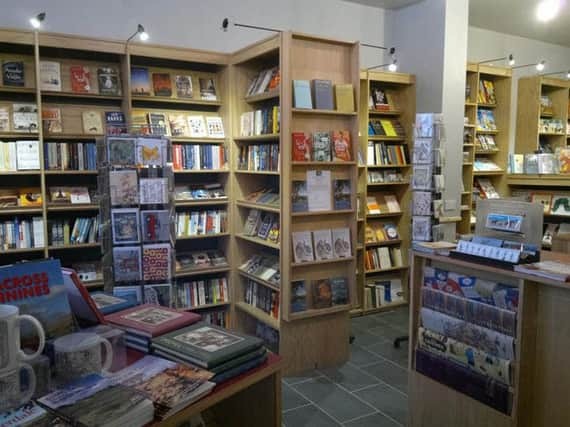Book sales rise boosts independent retailers


A plateau in the growth of e-books, as well as grassroots support for local businesses and the backing of major publishers is contributing to the health of independent stores, the Booksellers Association said.
Sales of physical books were up 2.7 per cent to £540m in the first 24 weeks of 2015, compared to early 2014, figures from Nielsen show, marking the best performance since 2012.
Advertisement
Hide AdAdvertisement
Hide AdRosamund de la Hey, vice president of the Booksellers Association, said the statistics are encouraging, despite the continued challenge of giants such as Amazon and Waterstones.
“It feels a little bit like a tide has turned,” she said.
“There’s real engagement with why bookshops are special, why they’re different and that comes down to the experience.”
Major publishing houses have been “very supportive” of independent retailers, Ms de la Hey said, while customers are returning to bricks-and-mortar stores for the personal touch.
“I was always told there are two things you can’t get on the internet: coffee and a haircut,” Ms de la Hey said.
Advertisement
Hide AdAdvertisement
Hide Ad“I would add to that bookselling, where it’s about the relationship with customers and the knowledge in those shops.”
This week - from June 20 to June 27 - marks Independent Bookshop Week.
The event is part of IndieBound, which highlights the importance of healthy and diverse high streets.
According to the Bookseller Association, there are 2,195 bookshops nationally.
Advertisement
Hide AdAdvertisement
Hide AdIn Yorkshire, there are currently 44 independent booksellers.
Kate Claughan, owner of The Bookcase in Hebden Bridge, said bookshops provide an important service to the community.
She said: “We have a massive cross-section of customers, from farmers to older retired residents, to young families.
“There’s a lot of elderly people come in - they don’t want to order books off the internet. They want to come and talk to somebody.”
Advertisement
Hide AdAdvertisement
Hide AdThe business, which had turnover of £135,000 in 2013, runs regular events, including poetry nights and author book readings.
Local publisher Bluemoose Books is curating the store as part of Independent Bookshop Week.
“We’re trying to buck the trend that says the high street is dying,” Ms Claughan said.
“We have a beautiful-looking shop that people love to come and visit. Our events establish us as an asset to the town, so people want to support us.”
Advertisement
Hide AdAdvertisement
Hide AdMike Sansbury, assistant manager of The Grove Bookshop in Ilkley, said independent booksellers must provide what online retailers can’t.
“Amazon can do discounts we can’t even dream of,” he said. “We try to offer what they can’t offer, which is personal service, a nice atmosphere to browse in, and an interesting selection of books.”
Readers are more likely to stumble on something of interest in store than online, he said.
“Online recommendations are not the same as having a book put in your hand, talking to someone, having a conversation.”
Advertisement
Hide AdAdvertisement
Hide AdThe Grove, which has been a bookshop since 1979 and has been under its current ownership for 12 years, is hosting a range of events through Independent Bookshop Week.
On Saturday, it held a Tiger Who Came to Tea-themed hunt for children in collaboration with six local shops.
Independent retailers are essential to “keep the high street looking interesting”, Mr Sansbury said.
“So many high streets are looking homogenous, so you don’t know whether you’re in Blackpool or Middlesbrough or Swanage - it’s the same shops, the same brands.
Advertisement
Hide AdAdvertisement
Hide Ad“To have independent businesses is vital because it’s usually local people, working hard, doing a job because they love it.
“People can have pride in their local shop.”
---
The sharp rise in e-book sales seen since 2012 has begun to plateau as the format “finds its feet”.
E-books accounted for around 30 per cent of fiction sales at the start of 2012, jumping to around 47 per cent in Q4 of 2013. However, the first three quarters of 2014 saw minimal growth.
Ms de la Hey said: “Genres that are traditionally very strong for e-books crime and mass market fiction, are beginning to see a bricks and mortar increase again. It feels like things are settling.”